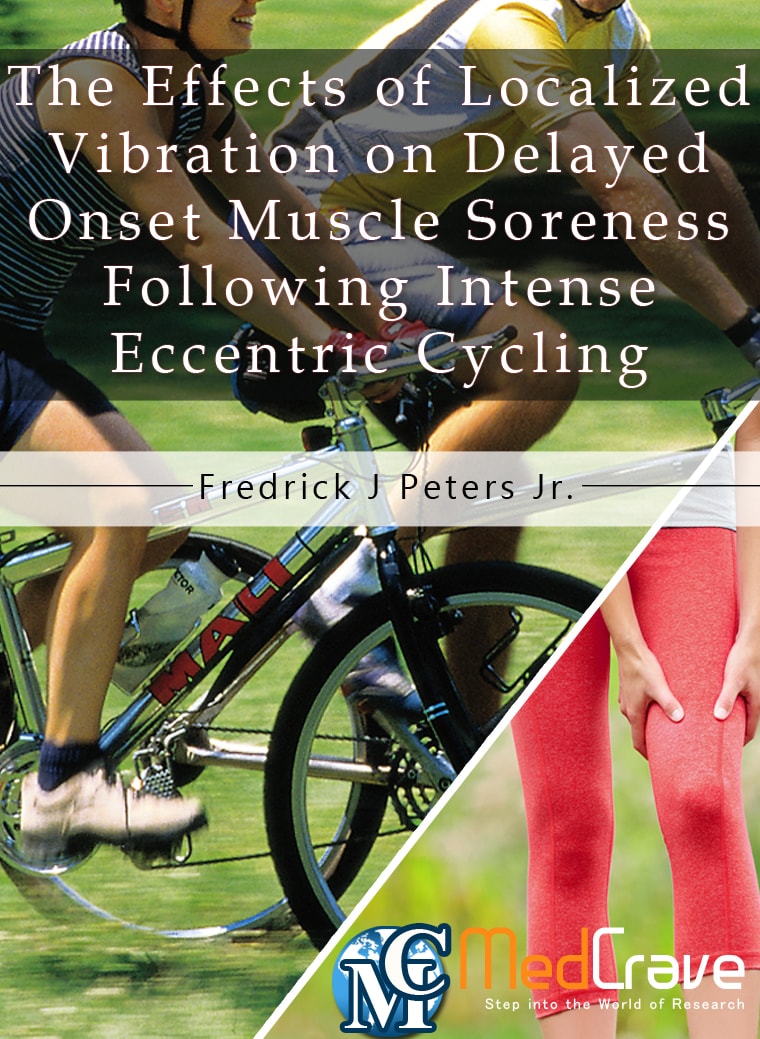eBooks View all | By AtoZ | By category
The Effects of Localized Vibration on Delayed Onset Muscle Soreness Following Intense Eccentric Cycling
By Fredrick J Peters
Kent State University, USA
Published: May 04, 2017 | pg. no: 45
Abstract: Delayed onset muscle soreness (DOMS) is musculoskeletal pain resulting from physical activity. DOMS affects athletic performance; therefore therapy is of interest to athletes. The purpose of this study was to examine the effects of localized vibration (biomechanical muscle stimulation, BMS) on biomarkers of DOMS following eccentric cycling, and to test changes in muscle length and soreness. We investigated if BMS reduces DOMS and enhances muscle function following eccentric exercise and if creatine kinase (CK), lactate, and pain were affected. Twenty-eight recreationally active men (18– 40 years old) were randomized into control or BMS groups. Subjects performed 5 minutes of eccentric cycling, then either received BMS, or rested. Outcome variables, plasma creatine kinase, blood lactate, pain scores (Likert), muscle length, muscle pain (self-reported), and pressure algometry were collected at four intervals (baseline, pre-cycling, 24 hours post-cycling, and 48 hours post). A main effect of time was found for quadriceps pain threshold (F(3, 78) = 3.02, p = 0.04). A main effect of time was found regarding an increase in lactate (p = .016; T0 to T1) and decrease in lactate (p= .025; T1 to T3). A main effect of time for Likert pain score was found pre-cycling versus post-cycling (p = .0001). There were no significant interactions between group (BMS or control) and time. This study does not support our hypotheses regarding localized vibration and recovery from DOMS. However, we found significance regarding a main effect of time for pain threshold in the quadriceps, Likert pain score, and lactate level.
View eBook
